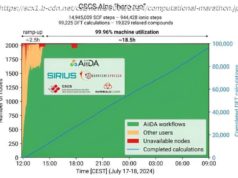Google’s latest updates bring SQL to Bigtable and powerful new data features to Spanner, simplifying the integration of AI and enhancing the capabilities of global, scalable databases for enterprises.
Google announced a whole series of database and data analytics improvements to its cloud data architecture.
In this article, we’ll focus on the substantial improvements to Spanner and Bigtable (two of Google’s cloud database offerings). These announcements substantially increase interoperability and open the door to additional AI implementations through the use of new features Google is showcasing.
Spanner is Google’s global cloud database. It excels in providing worldwide consistency (which is way harder to implement than it may seem) due to a plethora of time-related issues that Google has solved. It’s also scalable, meaning the database can grow big and span countries and regions. It’s multi-modal, meaning it supports media data and not just text. It’s also all managed through SQL (Structured Query Language) queries.
Bigtable is also hugely scalable (hence the “big” in Bigtable). Its focus is very wide columns that can be added on the fly and don’t need to be uniformly defined across all rows. It also has very low latency and high throughput. Until now, it’s been characterized as a NoSQL database, a term used to describe non-relational databases that allow for flexible schemas and data organization.
Both of these tools provide support for giant enterprise databases. Spanner is generally a better choice for applications using a globally distributed database that requires robust and immediate consistency and complex transactions. Bigtable is better if high throughput is important. Bigtable has a form of consistency, but propagation delays mean that data will not immediately, but eventually, be consistent.
Bigtable is primarily queried through API calls. One of the biggest and most game-changing features announced today is SQL queries for Bigtable.
This is huge from a programming skills point of view. In a 2023 Stack Overflow survey of programming language use, SQL ranked fourth, with 48.66% of programmers using it. There was no mention of Bigtable in the Stack Overflow survey, so I turned to LinkedIn for some perspective. A quick search of jobs containing “SQL” resulted in 400,000+ results. Meanwhile, a search for “Bigtable” resulted in 1,561 results, less than 1% of the SQL number.
So, while any number of folks who know SQL could have learned how to make Bigtable API calls, SQL means that the learning curve has been flattened to nearly zero. Almost one out of every two developers can now use the new SQL interface to Bigtable to write queries whenever they need to.
One note, though: this Bigtable upgrade doesn’t support all of SQL. Google has, however, implemented more than 100 functions and promises more to come.
Home
United States
USA — software Google introduces Bigtable SQL access and Spanner's new AI-ready features






